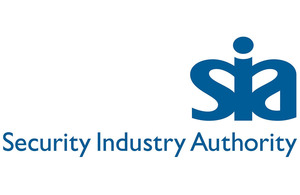Protecting international humanitarian law and objects indispensable to civilians’ survival
Thank you very much, Mr President, and our thanks to Mr Lowcock, Mr Maurer and Mr Kevin Rudd for their briefings. The United Kingdom is grateful to Vietnam for convening this debate, and is delighted to co-sponsor Vietnam’s resolution on the protection of indispensable objects for human survival.
Mr President, it was striking listening to the briefers today. They catalogued examples – specific examples – of despicable violations of international humanitarian law. And in this Council, we often hear of this kind of evidence – evidence of the devastation that such attacks on indispensable infrastructure have on civilian populations. We hear those stories in isolation, and the power of hearing them in aggregate is significant. Each one of them represents a failure of this Council to fulfil its mandate. They are our failures because we are not taking the action that might prevent them.
Because just as our briefers set out, the examples and impacts of violations, they also set out how they can be prevented. Enhanced compliance with international humanitarian law, proper military practice, and critically, accountability for those who make a tactic of such attacks.
So the adoption of this resolution today should signal the Council’s unity in condemning such attacks. But it will only start to address this issue if we are serious about taking action together.
Our first step must be to ensure all parties to armed conflicts understand their legal obligations under international humanitarian law, follow the rules and exercise restraint. That is why the United Kingdom provides specialist training in this respect through our partnership programmes with the armed forces of other Member States. Our training covers international humanitarian law, international agreements and the military justice system. Our aim is to build knowledge and compliance, and support more accountable defence and security forces.
But when perpetrators attack indispensable objects in full knowledge of their obligations under international law, and choose to ignore them we – this Council – should act. Instead, all too often, they are able to do so with impunity. Effective national and international accountability mechanisms are a crucial element in providing justice for victims and in preventing such attacks in the future through deterrence. It is worth underlining that under the Geneva Conventions and their Additional Protocols, States have the obligation to respect and to ensure respect for those instruments.
So what should we be doing? There are three immediate actions we can take to protect indispensable objects and prevent the suffering caused by targeting them in violation of IHL, using existing mechanisms.
Firstly, improve reporting and evidence. Governments and armed actors should ensure the timely collection and reporting of information to avoid harm to civilians and civilian objects, including indispensable objects. We should also ensure the effective use of existing UN reporting mechanisms into the UN Security Council and UN Secretariat to inform decision-making.
Secondly, the UNSC must act on reporting. Despite the provisions in Resolution 2417 the Council has failed to encourage any independent State investigations into the use of starvation of civilians as a method of warfare. We have the means, but no action has taken place. In our statement to the Council at the 11 March open debate on Conflict and Food Insecurity, we highlighted such concerns in Tigray, Northeast Nigeria, Yemen and South Sudan.
Thirdly, we should do more to hold those responsible for the targeting of indispensable objects in violation of IHL to account. We will continue to press for full, prompt and impartial investigations into all incidents where indispensable objections to the civilian population are attacked, and to ensure those responsible for serious violations of international humanitarian law are held to account. And the Council should also be ready to consider sanctions against those who attack civilian objects of otherwise violate international humanitarian law, as it has done previously, including in the context of South Sudan.
Mr President, I would like to underscore the United Kingdom’s own unwavering commitment to the proper implementation of, and compliance with, international humanitarian law. In March 2019, we published our first ‘Voluntary Report on the Implementation of International Humanitarian Law at Domestic Level.’ We are now working with the British Red Cross to support other Member States to produce their own reports on domestic implementation, as a practical measure to encourage continued improvements in compliance with international humanitarian law.
Mr President, the Al Atareb surgical hospital in north-western Syria was bombed just over a month ago – yet another stark reminder of the devastating toll of attacks on indispensable infrastructure on civilian populations. The attackers struck because they believe they act with impunity. No state should tell this Council it believes in IHL or wishes to protect objects indispensable to the survival of the civilian population unless it is willing to take steps to prevent attacks like this and hold those who commit them to account.
Thank you, Mr President.

